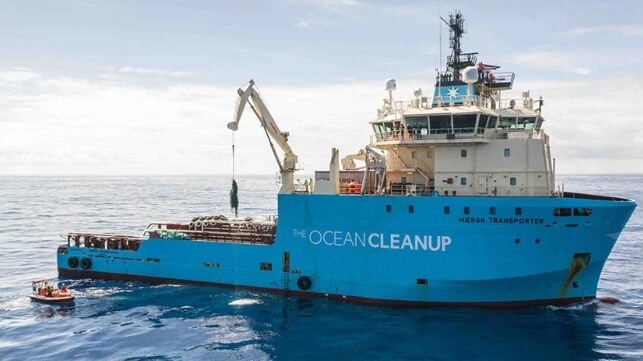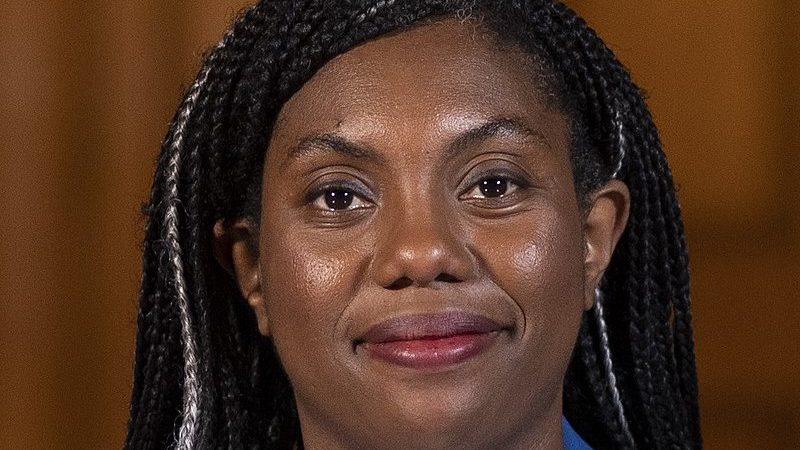Ocean Plastic Cleanups May Do More Harm Than Good
Critics say removing ocean plastic can be expensive, harmful to animals and detract from efforts to stop waste at source

[By Emma Bryce]
When fishers in China’s Zhejiang province return home each day, they haul ashore more than fish. Over the past four years, 11,000 fishers have together unloaded over 2,800 metric tonnes of plastic, mainly fishing nets.
They are paid around 1 USD per kilogram by Chinese environmental initiative Blue Circle for this, along with a share of the profit from the sale of recycled plastic pellets to manufacturers who make new goods out of the processed waste.
The fishers “all know that they are contributing to environmental protection and making the ocean cleaner”, says Xianhua Mao, a technical expert with the organisation.
The UN Environment Programme (UNEP) has recognised Blue Circle for its achievements. It is part of a growing group of organisations and companies worldwide that have responded to the environmental threat of plastic with projects to sift out, slurp up, net, and otherwise trap tonnes of waste from beaches, rivers and oceans.
Rebecca Helm, marine ecologist, Georgetown University
But as plastic-fishing projects attract public attention and millions in funding, some experts are sceptical. They fear some schemes can do unintended harm and may even stall efforts to reduce plastic waste in the first place.
The toll of drones, bots, and nets
One thing is clear: plastic is an environmental threat of epic proportions. An estimated 1.7 million tonnes enters the ocean each year, where it entangles, starves, and kills millions of animals; smothers coral reefs; and breaks down into micro- and nano-sized particles that enter the food chain.
But “plastic pollutes habitats, ecosystems, places where animals already live”, says Rebecca Helm, a marine ecologist at Georgetown University. “So taking plastic out using something like big nets is going to take life out with it.”
In a 2023 paper, Helm joined a group of concerned researchers who cautioned against what they called “the fallacy of plastic cleanup technology”.
Drones and robots designed to skim plastic off water surfaces risk pulling in creatures, they say. Other devices have been shown to capture significant amounts of sea life along with plastic.
The technology keeps advancing. Small, industrious robots are now proliferating across beaches worldwide, constantly sieving out plastic.
When conducting research for the study, Melanie Bergmann, the paper’s lead author, was alarmed by examples of such sand-sieving robots. “What kind of ecosystem will be there after that?” asks Bergmann, a marine ecologist at the Alfred Wegener Institute in Germany. “It’s a habitat; it’s full of organisms that live there, and if you destroy it all the time, that’s not very beneficial either.”
Garbage patch or ecosystem?
The so-called Great Pacific Garbage Patch is home to the most widely publicized plastic-fishing projects. Here, Netherlands-based outfit The Ocean Cleanup has a huge net-fringed boom that uses ocean currents to herd in plastic from the surface of this gyre in the North Pacific. It has also deployed dozens of plastic-catching booms in rivers worldwide and describes its efforts as “the largest cleanup in history”.
But the gyre is home to an array of surface-dwelling organisms that can be swept up with the plastic, including sea dragons, by-the-wind sailors, and snails. Running a cleanup operation through it could significantly disrupt the ecosystem and trap marine animals, scientists including Helm have warned. “It’s an extremely rich habitat in the North Pacific, so much so that I don’t even like calling it the Garbage Patch,” says Helm. “It is an ecosystem.”
The Ocean Cleanup’s own environmental impact assessment states that almost 700 kg of fish, including sharks, molluscs and turtles, were ensnared in one of its systems over the course of 12 cleanup trips.
Though this is “less than a percent of the total amount of plastic catch”, it raised concerns because “we are here to protect marine life, not kill it”, says Matthias Egger, head of environmental and social affairs at The Ocean Cleanup. He adds that the organization submits to regular independent environmental impact assessments and that its systems have been designed to allow turtles to escape. It has made changes both to the design and use of its system over the years to try and reduce the impact on marine life.
An upstream battle
Cleanups face mind-boggling quantities of waste. By 2040, global plastic production could increase by 66% on 2019 levels. With landfills under increasing strain, researchers estimate it could nearly triple the amount of plastic entering the ocean by the same year.
The Ocean Cleanup estimates that since its operation started, it has removed 0.5% of the plastic from the North Pacific gyre, or just over 450 tonnes. In April, the organization announced it had cleaned up 10,000 tonnes worldwide since it started collecting in 2019. Estimates of plastic ending up in the ocean every year range from 1 to 2.4 million tonnes.
“The efficiency of the whole thing is very, very limited,” says Ewoud Lauwerier, a plastic policy expert at the nonprofit Ocean Care.
The Ocean Cleanup’s core goal is to remove 90% of floating plastic from the global ocean by 2040. Egger says the organization’s data shows this is achievable if it deploys dozens more cleanup devices in rivers and the ocean. The organisation believes humanity needs to reduce plastic production to stem the flow of marine waste, but that this could take years, Egger says.
There are also questions over what becomes of the plastic that cleanup efforts retrieve. Some groups claim to recycle ocean plastic into new goods, but a glut of cheap new virgin plastic has shrunk the market for recycled materials, and ocean plastic is often low quality. This raises the question of how much of the retrieved plastic will end up in landfills or incinerators.
The cost of cleaning up
The stakes have been raised by work towards creating an international treaty to end plastic pollution, which nations have pledged to finalize by the end of 2024. The treaty could establish a global cap on the amount of plastic produced. But there also exists increasing political and financial interest in downstream measures, including cleanup.
The Innovation Alliance for a Global Plastics Treaty brings together dozens of companies and nonprofits that are developing ways to tackle plastic pollution, and is spearheaded by The Ocean Cleanup. It has already requested that the treaty include mechanisms to finance innovators in all areas of plastic to the tune of $30 billion a year.
It would cost The Ocean Cleanup more than $10 billion each year to collect 90% of the plastic that enters the ocean annually, according to a report published by the Environmental Investigation Agency (EIA) and Ocean Care. This figure doesn’t include plastic already in the ocean.
Millions of dollars have already been channeled towards cleanup projects via donations from major users of plastics, petrochemical producers of plastic, and an industry-funded organization called the Alliance to End Plastic Waste.
“The amount of money that it might cost us to manage all the waste we’re potentially going to produce in the future … it’s almost unfathomable,” says Jacob Kean-Hammerson, a campaigner for the EIA’s ocean program. "If the focus remains on plastic retrieval, “we’d be stuck in a situation of perpetual cleanup."
To clean or not to clean?
Despite the uncertainties, even skeptics believe cleanups are needed in some circumstances. Experts agree there is a clear case to intervene in locations like trash-choked rivers, or the coastlines of small island states that receive tonnes of tidal waste.
Jannike Falk-Andersson, a senior researcher at the Norwegian Institute for Water Research, says that where cleanup is needed, it should be regulated. Projects could also be required to report what happens to the retrieved plastic, she says. China’s Blue Circle, for instance, uses blockchain technology to trace plastic, which is how they know that over 40% of plastic that fishers deliver to them has been recycled.
Ocean cleanup need not cost billions, as several experts Dialogue Earth spoke with noted. They mentioned the Ocean Voyages Institute as a cost-effective example. Its volunteer sailors use hooks and poles in the North Pacific Gyre to retrieve “ghost gear”, or discarded fishing equipment. This low-tech method limits bycatch and has collected 362 metric tonnes of plastic from the North Pacific.
Ultimately, prevention, by limiting plastic production and stopping plastic waste from entering the sea, is the best long-term action we can take to realize a largely plastic-free ocean.
In the meantime, Falk-Andersson says there is one thing everyone can do to play a part: “The best way of doing cleanups is by hand. Don’t walk past the next piece of plastic: pick it up.”
Emma Bryce is a freelance journalist who covers stories focused on the environment, conservation and climate change.
This article appears courtesy of Dialogue Earth and may be found in its original form here.
The opinions expressed herein are the author's and not necessarily those of The Maritime Executive.









 The AfD's Jürgen Treutler blocked proceedings in the Thuringian state parliamentImage: Jens Schlueter /AFP/Getty Images
The AfD's Jürgen Treutler blocked proceedings in the Thuringian state parliamentImage: Jens Schlueter /AFP/Getty Images